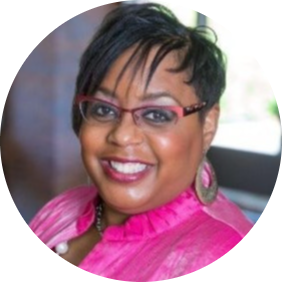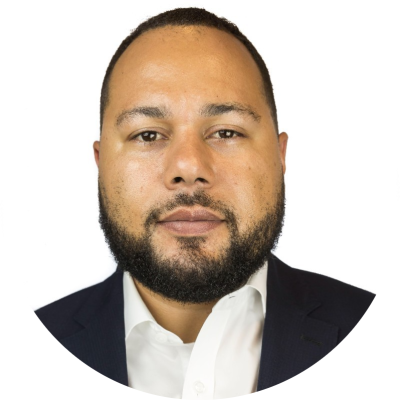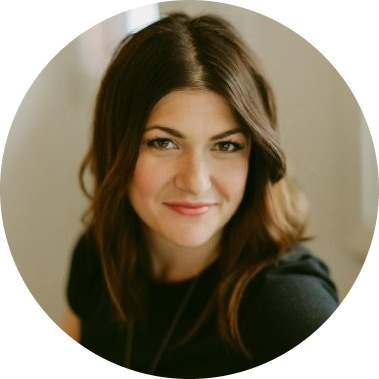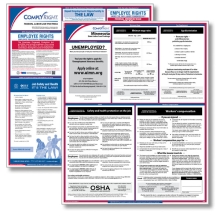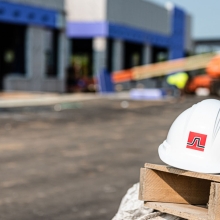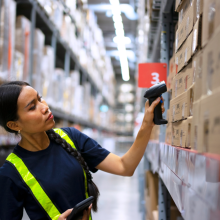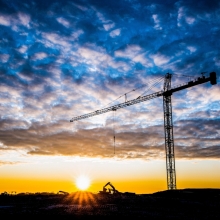Making Minnesota the most inclusive state in the country
Here’s what the experts had to say
The business community plays a leadership role in fostering inclusive workplaces and supporting diverse communities. It extends beyond the corporate community and the Twin Cities, and the Minnesota Chamber Foundation is leading a statewide effort to assist businesses of all sizes and locations to achieve our goal of Minnesota being the most inclusive state in the country.
At the recent 2023 Workforce Summit, a panel of business leaders shared best practices and insights into how their companies are working to create more inclusive workplaces.
Moderated by Damu McCoy, Executive Vice President, Head of Talent Acquisition, Wells Fargo, the panel included:
-
Tracey Gibson, Vice President, Chief Diversity Officer, Andersen Corporation
-
Courtney Schroeder, Head of Diversity, Inclusion and Belonging, General Mills
-
Jessica Stoe, Brand and Marketing Director, Gardner Builders
Tracey Gibson, Vice President, Chief Diversity Officer, Andersen Corporation
Damu McCoy: Why is diversity, equity and inclusion work important? Why is it important to your company? How is your company thinking about it?
Tracey Gibson: Talent is the most important thing, regardless of what company you work for, because it's the people that we need to bring into our organizations, help to have a sense of belonging, help them to understand the corporate values and where we're going and then retaining them. And it's so important for us at Andersen Windows and Doors is how we retain our talent and the types of programs that we're implementing in this world called diversity, equity and inclusion. In this space, it's really starting with listening to our employees first and then going and setting the strategy for where we're going with this work.
DM: Thinking about some of the work that your organization is doing, what might you highlight for the audience?
TG: One of the things that we started doing at Andersen is we're offering English as a second language and they get to do it during the workday and they get paid for it in this time. I can't tell you how important that is in one, building brand equity, because we're investing in people. It doesn't matter whether they continue to work for Andersen or not, we're investing in their development. Now I got some loyalty because you are going to probably want to stay with us because we're showing that we're investing in you...The coolest thing for me is once the employees go through the program and graduate, they then get to talk about their country in English, and they show pictures and they have food and they bring it together for them to be able to demonstrate the skills. They are so proud. And when you ask the question, "What language would you like the company to communicate with you in?" Nine times out of 10, they want to talk in English because they want to build that confidence. Being able to offer programs like this during the workday is very important for those who are hiring people immigrants into their workforce. We also offer GED training as well because we removed some of those hiring barriers that we heard about earlier.
DM: How is your company opening itself up to communities that might not otherwise be able to participate in the industry?
TG: The deaf and hard of hearing community is going to help us put in new systems on how we are sounding the alarm [on manufacturing floors] when we need to sound alarms. It's helping us think about technology in a different way. It's helping us to also think about other places or pipelines of people that we would not have considered in the past to come work for us. It's been a game-changer for Andersen. We have prayer rooms in our manufacturing production plants. We have mom pods. We are doing many things that people would've said three, five years ago couldn't be done. It's happening and it's given us a pipeline of talent.
Courtney Schroeder, Head of Diversity, Inclusion and Belonging, General Mills
DM: Why is diversity, equity and inclusion work important? Why is it important to your company? How are is company thinking about it?
Courtney Schroeder: General Mills started supplier diversity in the early '90s. We've had employee resource groups for almost 30 years. We can say that we've had at least one female and one ethnically diverse board member since 1975. If you look now, a third of our board is ethically diverse, 50% women.
If you talk to any seasoned business leader they will tell you they were a better leader when that diversity of perspective is at the table, that when they are challenged, when they have a new way of thinking. And to do that, not only do you need the diversity, but you also need the inclusion...No matter what role or what seats you sit in, if you truly engage in this idea of recognizing, appreciating diversity, of practicing inclusive habits, I will guarantee you will just be a better person. I am a better person for having done DEI work. I am more thoughtful, I am more empathetic, I am more authentic. These are characteristics that come out as a result of the day-in, day-out of practice of DEI work that all of us can engage in.
DM: Your company has a long history of progress being made in this space. Talk a little bit about the belonging piece and then maybe highlight a few things you're doing broadly speaking in this space.
CS: So when we say diversity, as we talk about diversity, it is actually as simple as just the differences. The dimensions of our identity that make us unique. It's absolutely gender, race, sexual orientation, but there's other aspects of diversity as well. So we think about diversity, neurodiversity, we think about where you're from, socioeconomic status, things of that nature. We do use a broader definition of diversity knowing that gender, race, ethnicity and sexual orientation are oftentimes many of the things we have a little bit more focus on. When we say inclusion, inclusion is an idea, it's a set of practices and behaviors that we do to make someone feel welcome, heard, like they actually can use their voice, right? Being included is actually what do you do to make sure people feel included at the table? We define belonging as an emotional instate. If you have this array of diversity at the table, you have a set of practices and behaviors that are inclusive.
What you hopefully create is a sense of belonging that someone's not just included at the table, but I'm supposed to be at the table. And let me tell you why we think that matters. We do as many of you might do, climate surveys or engagement surveys, we actually ask the question, "I feel a sense of belonging at General Mills" and we get really strong scores. We just did this a few months ago and we had folks in the high '80s across race, ethnicity, across gender. For us, if you can actually get a highly engaged workforce, that is productivity.
DM: What's one takeaway you want the audience to have today?
CS: I would just say start with what you can. Don't let trying to boil the ocean get in the way. Slow progress is better than no progress. We'll just challenge everyone to do what you can with what you have.
Jessica Stoe, Brand and Marketing Director, Gardner Builders
DM: Why is diversity, equity and inclusion work important? Why is it important to your company? How is your company thinking about it?
Jessica Stoe: I am originally from South Africa. I immigrated here in 2009. Minnesota was a very scary landscape for me at the time. I really found my anchor in my community, in the business community. I had an incredible experience of belonging joining Gardner Builders.
I think this work matters to me most because of the experience that I had in eliminating barriers for me to learn about the construction industry, to create opportunities for me to grow, to create opportunities to impact the people that we interact with every day and create very wholesome, holistic communities and a place for other people to belong. I want to make that part of my life's work is making sure that we continue to widen that circle and bring more people into our fold and make Minnesota a really inclusive place where people feel like they belong.
DM: I know some organizations say, "I can't do this work. I don't know how I can prioritize it. I don't know how I can let it bubble up to the top of the things that we do." Talk a little bit about your organization and what you've been able to do.
JS: I think first off, the work itself can feel intimidating at times, right? For us being a smaller organization there's almost that sense of imposter syndrome. Like, who am I to really begin this important work, especially observing what has happened recently. It's easy to look at big corporations and see the amazing things that they have in place, amazing machines that they're able to build and keep generated. At first we were like, how do we enter the space? I found that the more we started the conversation and we pulled everyone together internally in a very organic way, it became kind of a blessing to us that we were starting at a place of 200 people in the organization because everybody's voices were represented...We had groups that would get together and really just keep a pulse on the company's culture to make sure that we were inclusive, that we were representing different opinions, different diverse perspectives, and started to build on the cultural values that were always innately attributed to Gardner.
DM: What's one takeaway you want the audience to have today?
JS: Lake Street Works is a construction mentorship program, paid internships in the Lake Street area. They're just really looking to us to be contracting partners to come alongside them and design their mentorship program to provide internship opportunities. So it's really led us to create sort of entry-level positions within our organization and remove any barriers that may exist. I would want to leave that with everyone today. Examine potential barriers and see how we can grow our workforce without putting a four-year college degree in somebody's way.
Click photos to view full size and ESC or refresh to return to page.
Interested in workforce issues?
Minnesota’s workforce is growing increasingly diverse, making workplace inclusion a business imperative. Workforce inclusion goes beyond hiring diverse candidates. In this series, we will provide practical solutions to making your business a place where employees’ unique strengths contribute to the organization’s culture. The Workforce Solutions Series: Innovative workplace programming event will delve into the benefits of diversity and inclusion as a business strategy and how inclusive workplaces can contribute to long-term employee retention.
